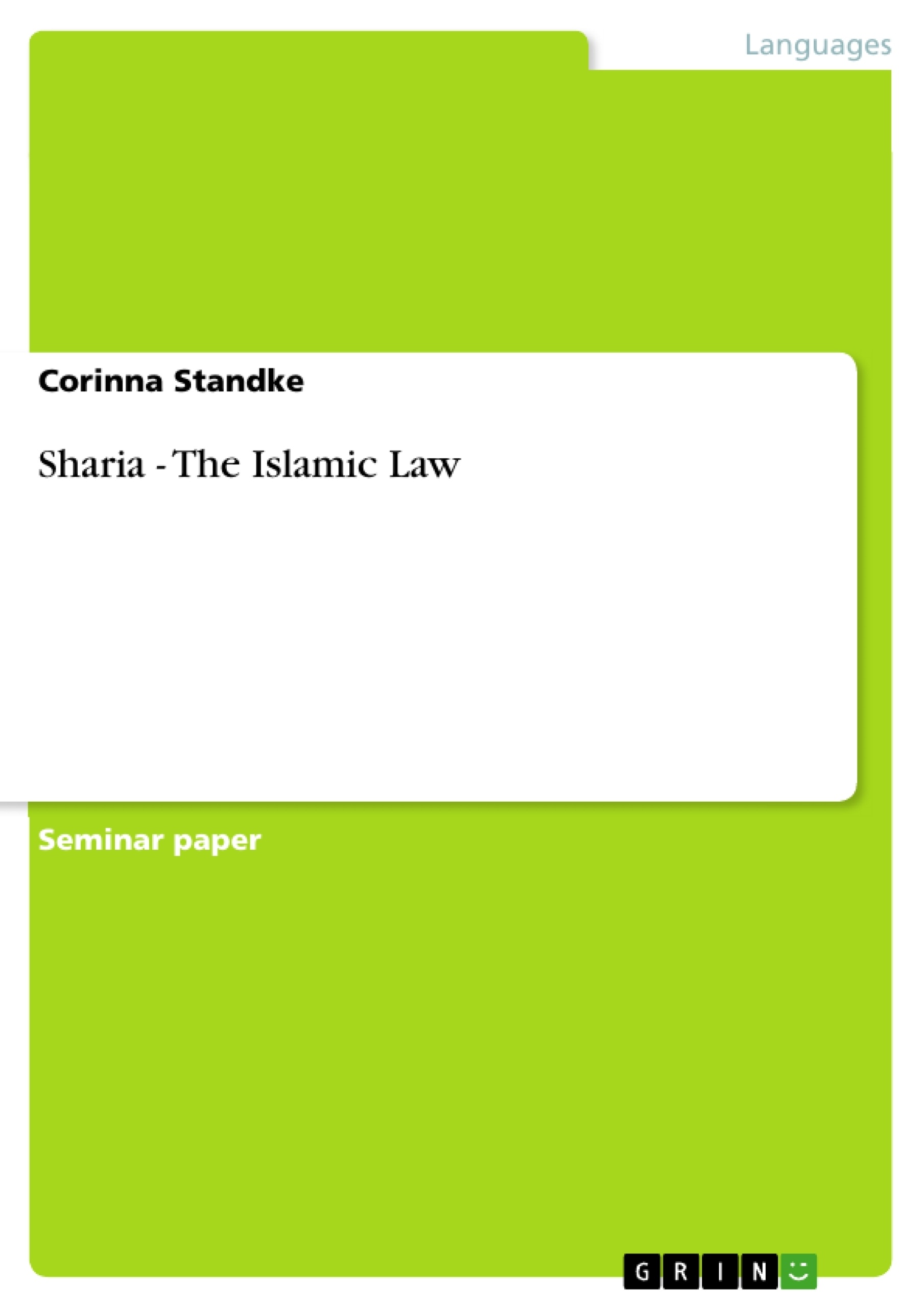Today, we live in a multicultural society. In our nearest environment there are people from different cultures or religions and they are part of our society. Muslims are one group that participates in our daily lives. For example, we are surrounded by many Turkish people, without really knowing which principles they follow. If we open a newspaper, we find plenty of articles dealing with Sharia, the Islamic law. There is for example the Archbishop of Canterbury who wants to integrate Islamic law into British law. And at present, the debate on headscarves in Turkish universities revives. Once in a while, we hear from women who are sentenced to death because they had unlawful sexual intercourse. But what do we really know about Muslims? Which rules do they follow and where do these rules come from? If we cannot answer this question, it is difficult to understand why there are these harsh punishments in some Islamic countries and why Islam is so important for the social development of these countries. There are Islamically inspired schools, clinics, social welfare services, and insurance and finance companies that have proliferated. Governments have to face crises of identity and political legitimacy and they are pressured to reformulate values and legislation within an Islamic framework. Some people call for the implementation of Sharia and others call for the Islamization of existing laws. In my paper, I will give an insight into Sharia and I will show how it is implemented in different Islamic countries. As this is a very complex topic, I will focus on the origin of Sharia, customs, family law, and crime and punishment, so as to explain the main principles of Muslim faith.
Inhaltsverzeichnis (Table of Contents)
- Introduction
- Definition
- Sources of Sharia
- Quran
- Sunnah
- Ijma
- Qiyas
- Topics of Islamic law
- Dietary laws: Halal
- Customs and behaviour
- Dress codes
- Family law
- Marriage
- Divorce
- Inheritance
- Penalties
- Theft
- Adultery and fornication
- Apostasy
- Women in Islam
- Non-Muslims
- Contemporary issues
- Contemporary practice
- Sharia in Nigeria
- Democracy and human rights
- Conclusion
Zielsetzung und Themenschwerpunkte (Objectives and Key Themes)
This paper provides an overview of Sharia, exploring its origins, practices, and relevance in contemporary society. The paper aims to demystify the Islamic legal system by explaining its core principles and demonstrating how it is implemented in various Islamic countries.
- The origins and sources of Sharia
- Key aspects of Islamic law including customs, family law, and crime and punishment
- The role of Sharia in shaping social and political structures in Muslim communities
- Contemporary debates surrounding Sharia and its application in modern society
- The relationship between Sharia and Western concepts such as democracy and human rights
Zusammenfassung der Kapitel (Chapter Summaries)
The introduction sets the stage by highlighting the growing presence of Muslims in multicultural societies and the increasing relevance of Sharia in contemporary discourse. The paper then delves into the definition of Sharia, emphasizing its role as a comprehensive legal framework for Muslims. The subsequent chapter explores the sources of Sharia, emphasizing the Quran and Sunnah as primary sources and examining the roles of qiyas and ijma in legal interpretation.
Schlüsselwörter (Keywords)
The main keywords and focus topics of this text include Sharia, Islamic law, Quran, Sunnah, Ijma, Qiyas, family law, criminal law, women in Islam, contemporary issues, democracy, human rights, and multiculturalism.
- Arbeit zitieren
- Corinna Standke (Autor:in), 2008, Sharia - The Islamic Law, München, GRIN Verlag, https://www.grin.com/document/113665



